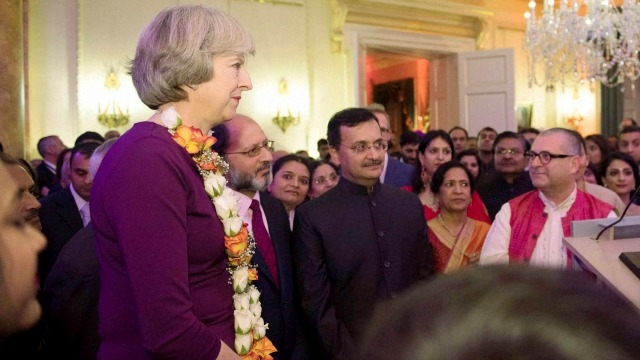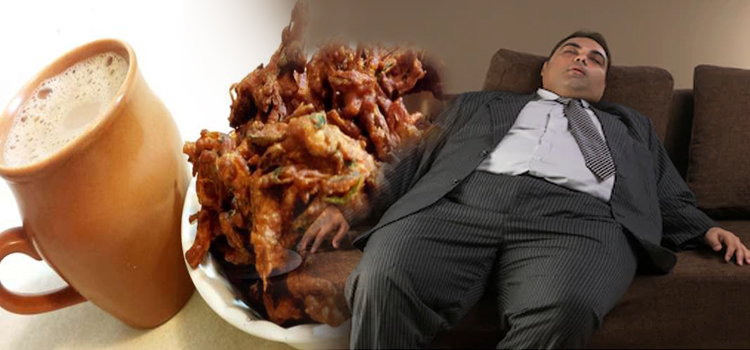A few years ago, I became aware of several problems that affected Hindus in Britain (and elsewhere), and wanted to do my bit to help. I have come across many young Hindus who have felt like this at some point in their life.
In my innocence, I thought that joining some or other large Hindu organisation would be a good idea. Over the next two years I attempted to work with many Hindu organisations in Britain, as well as some local temple committees. God knows how I persevered so long!
With a few exceptions, my experiences were not positive. Most meetings, which should have been places of constructive discussions, consisted rather of the reading of accounts sheets, a few resolutions (that never got implemented), followed invariably with samosas, pakoras, chai and mithai (or other variants of Indian snacks).
Occasionally I would try and suggest new ideas, for example sports, debates or other events. It was the prospect of helping organise these types of activities that brought me there in the first place. However instead of receiving support, I was inevitably greeted with twenty reasons why my idea was ‘not feasible under present circumstances’.
While it is true that there are always hurdles or challenges involved in setting up new work or activities, that isn’t a reason not to even try.
New people often turned up to meetings, clearly with a lot of energy, enthusiasm and ideas. After some time, such individuals would stop turning up to meetings, clearly discouraged that they were getting nowhere.
Leaders and committee members of such organisations often meet prominent persons, such as councillors and MPs, as representatives of British Hindus. I often attended such meetings.
At these meetings I was greeted by a similar sequence of events that I had encountered at other meetings (tea-party), except with one more feature thrown in – the photo shoot.
 I was shocked by the importance that many of our community leaders attach to having their photographs taken with councillors, MPs and (even better) members of the royal family, and then treating these photographs as trophies.
I was shocked by the importance that many of our community leaders attach to having their photographs taken with councillors, MPs and (even better) members of the royal family, and then treating these photographs as trophies.
If you visit the homes of one of these community leaders, they will have these photographs adorning their walls, and will draw your attention to them. This may seem like a minor quibble, however in many ways, it has a detrimental effect on the community. We are not going to be taken very serious politically if every time the supposed representatives of our community meet politicians they turn the occasion into a chai-pakora party and photograph session instead of taking it as an opportunity to raise concerns or make suggestions regarding issues that concern Hindus in Britain. At any rate, it is not a very good image or example to other Hindus to show such a cringing and subservient attitude towards those who wield a little power.
 It became apparent to me that the individuals who are running many Hindu organisations are more concerned about personal prestige and comfort, rather than using their positions to serve the communities. This led me to quit trying to work within large organisations.
It became apparent to me that the individuals who are running many Hindu organisations are more concerned about personal prestige and comfort, rather than using their positions to serve the communities. This led me to quit trying to work within large organisations.
Many people will criticise me for this article, saying that I will make Hindus look bad by saying these things, and damage people’s enthusiasm to get involved in community work. That is not at all my intention. I sincerely believe that despite all of this, there is a lot of scope for Hindus who want to make a difference – once we stop expecting anything from our supposed community leaders, and learn to take responsibility ourselves. I don’t wish to paint a picture of gloom – the problems I have described can be overcome in several ways.
The main message I wish to put across is this; if you have any ideas that you want to implement, don’t rely on any organisation to help you. Get a few like-minded people together and do it yourselves. This is what I did, and my experiences have been far more rewarding. Over the past few years I have come across many similar small groups of Hindus who run their own very impressive activities without help from any ‘major Hindu organisation’, and have clearly made a difference in educating, uniting and supporting the Hindu communities of Britain. There are people who have put together discussions, exhibitions, sports, martial arts events, high quality websites, social gatherings and many other events with limited resources.
The future Hindu renaissance is going to be created and shaped by the efforts of people on the ground, people like you and me. Whether or not large organisations want to play their part is up to them, but they are not essential to the grand scheme of things.
Rajesh






























